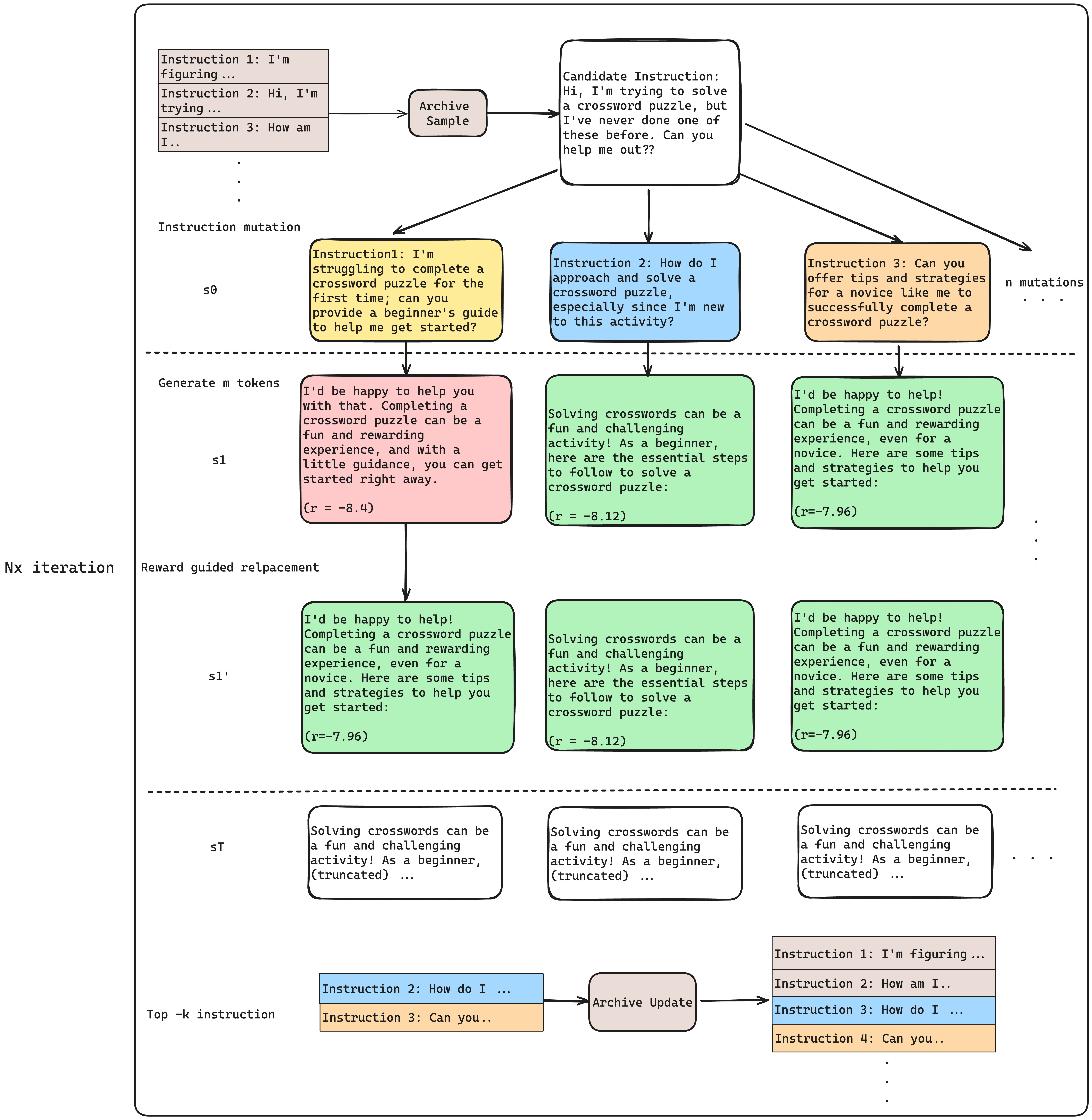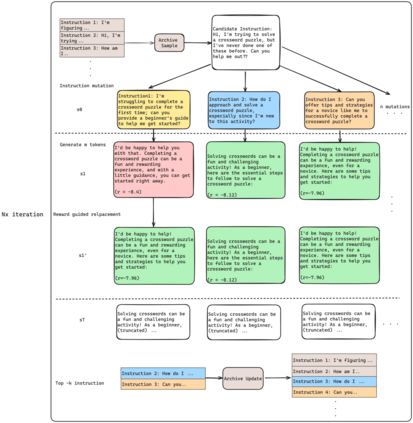The widespread applicability and increasing omnipresence of LLMs have instigated a need to align LLM responses to user and stakeholder preferences. Many preference optimization approaches have been proposed that fine-tune LLM parameters to achieve good alignment. However, such parameter tuning is known to interfere with model performance on many tasks. Moreover, keeping up with shifting user preferences is tricky in such a situation. Decoding-time alignment with reward model guidance solves these issues at the cost of increased inference time. However, most of such methods fail to strike the right balance between exploration and exploitation of reward -- often due to the conflated formulation of these two aspects - to give well-aligned responses. To remedy this we decouple these two aspects and implement them in an evolutionary fashion: exploration is enforced by decoding from mutated instructions and exploitation is represented as the periodic replacement of poorly-rewarded generations with well-rewarded ones. Empirical evidences indicate that this strategy outperforms many preference optimization and decode-time alignment approaches on two widely accepted alignment benchmarks AlpacaEval 2 and MT-Bench. Our implementation will be available at: https://darwin-alignment.github.io.
翻译:暂无翻译






